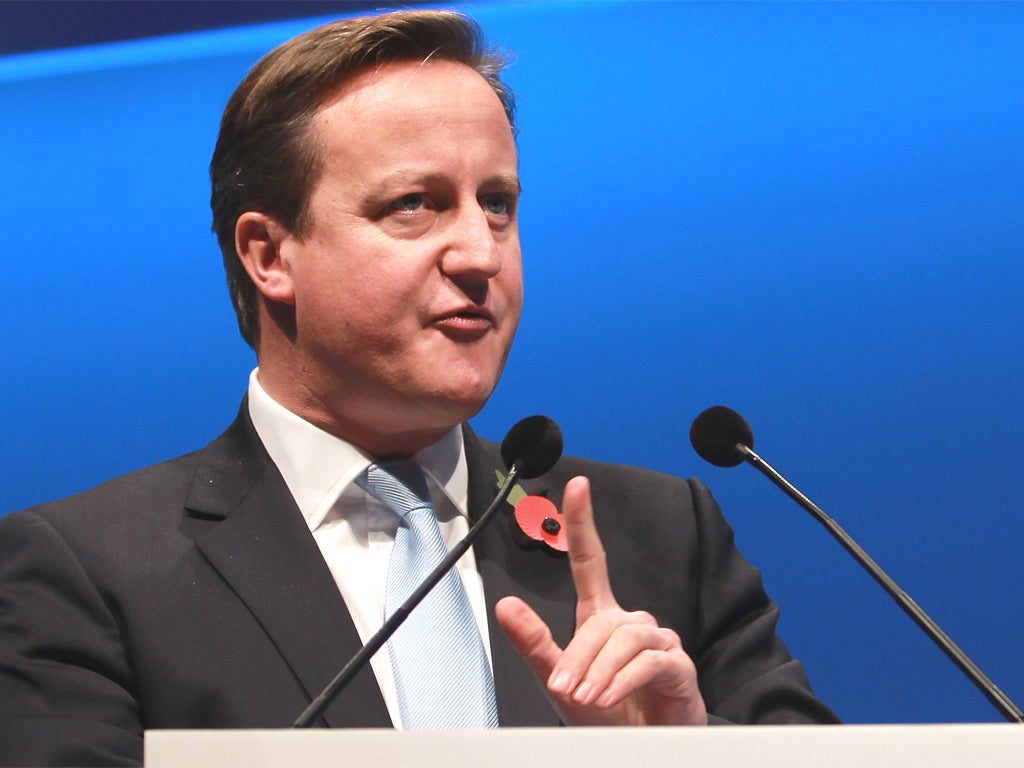Plans to lift 'cloak of secrecy' off 'shell company' owners
Prime Minister announces move to create central register for all British firms to combat criminals and corruption

Your support helps us to tell the story
From reproductive rights to climate change to Big Tech, The Independent is on the ground when the story is developing. Whether it's investigating the financials of Elon Musk's pro-Trump PAC or producing our latest documentary, 'The A Word', which shines a light on the American women fighting for reproductive rights, we know how important it is to parse out the facts from the messaging.
At such a critical moment in US history, we need reporters on the ground. Your donation allows us to keep sending journalists to speak to both sides of the story.
The Independent is trusted by Americans across the entire political spectrum. And unlike many other quality news outlets, we choose not to lock Americans out of our reporting and analysis with paywalls. We believe quality journalism should be available to everyone, paid for by those who can afford it.
Your support makes all the difference.All British-registered firms will soon have to reveal their true ownership to prevent criminals from using shadowy “shell companies” as a front for terrorist funding, money-laundering or tax evasion, David Cameron will announce today.
Such firms, which exist only on paper, are legally entitled to keep the identities of their key figures, hidden, making them ideal for hiding cash from the authorities. The Prime Minister will set out plans which are designed to lift this “cloak of secrecy” by creating a central register of the ultimate ownership of UK companies.
He will argue that the initiative will benefit domestic taxpayers and stop corrupt foreign regimes from hiding their riches in “shell companies”.
The moves were initially signalled at this summer’s G8 summit in Northern Ireland, but the Government had only been expected to make the register available to the Inland Revenue.
However, to the delight of campaigners, it has gone further than anticipated and decided to open the register to public scrutiny.
The scheme, which has been championed by the Business Secretary, Vince Cable, is likely to be included in the Coalition’s next legislative programme, with a view to establishing the register by 2015.
Mr Cameron will say: “For too long a small minority have hidden their business dealings behind a complicated web of shell companies and this cloak of secrecy has fuelled all manner of questionable practice and downright illegality.”
He will say the illegality is “bad for the developing world as corrupt regimes stash their money abroad under different identities” and “bad for Britain’s economy too as people evade their taxes through untraceable trails of paperwork”.
He will tell a conference in London: “Not only is this hugely unfair to the millions of hard-working people in Britain who pay their tax, but it’s also bad for business. To keep corporate taxes low, you’ve got to keep corporate taxes coming in.”
The Prime Minister will call on other countries to back Britain’s approach.
One source said last night: “We are one of the first countries to say ‘we are doing this’ and we want others to follow.”
Gavin Hayman, the director of the campaign group Global Witness, said: “Anonymous shell companies are the global getaway cars for crime, corruption and tax evasion. Full credit should go to the Prime Minister and the Business Secretary for acting to take away the keys.”
Roger Barker, the director of corporate governance and professional standards at the Institute of Directors, said: “It is right the true owners of companies should be transparent both to the company itself and the wider business community. Using the corporate veil to obscure underlying ownership brings the corporate sector into disrepute and creates significant opportunities for wrongdoing or criminal activity.”
The anti-poverty campaign group One hailed the move as a “really important moment in the fight against corruption”. Adrian Lovett, its Europe executive director, said: “David Cameron has made life much more difficult for the criminal and corrupt who exploit secrecy around company ownership. Making information about who owns and controls companies publicly available will give citizens and journalists in developing countries access to the data they need to follow the money and root out corruption.”
Join our commenting forum
Join thought-provoking conversations, follow other Independent readers and see their replies
Comments